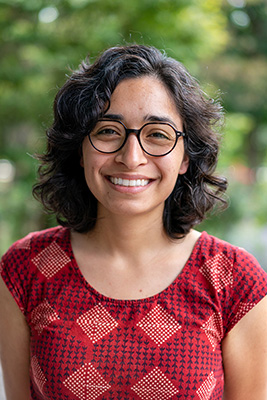Faculty Profile
Crystal Reynaga
Assistant Professor of Biology (2022)Contact Information
Dickinson College
--
http://www.reynagalab.weebly.com
Bio
My research investigates questions that lie at the intersection of musculoskeletal physiology and movement mechanics. Work in my lab aims to understand how animal movement can be affected in complex environments, from the whole animal scale to the muscle level. My experimental approaches examine shifts in limb anatomy, the nervous system, and muscle-tendon mechanics to determine what drives changes to locomotor performance. My lab employs an integrative approach using modern physiological and engineering tools, such as electromyography, muscle imaging, biological materials testing, high-speed videography, computer vision, and 3D printing. As a Chicana scientist and first-generation college student, my experiences in STEM have motivated me to devote my career to help increase diversity in STEM fields and broaden the public’s perception of science and scientists. I am propelled by my steadfast desire to serve my community and support others in their pursuits of scientific and academic endeavors. A significant part of my work incorporates advocacy, mentorship, and developing inclusive community to recruit, sustain, and retain students underrepresented in the sciences.
Education
- B.S., University of California, Santa Cruz, 2012
- Ph.D., University of California, Irvine, 2018
